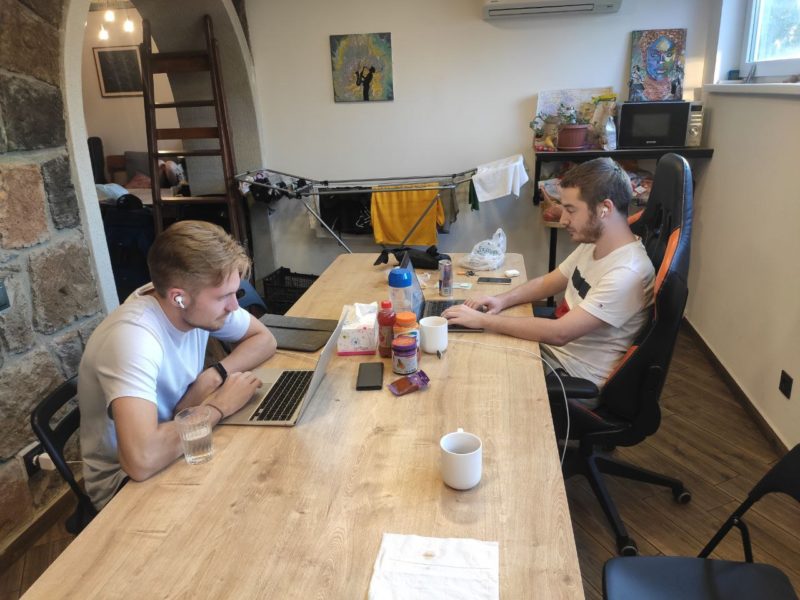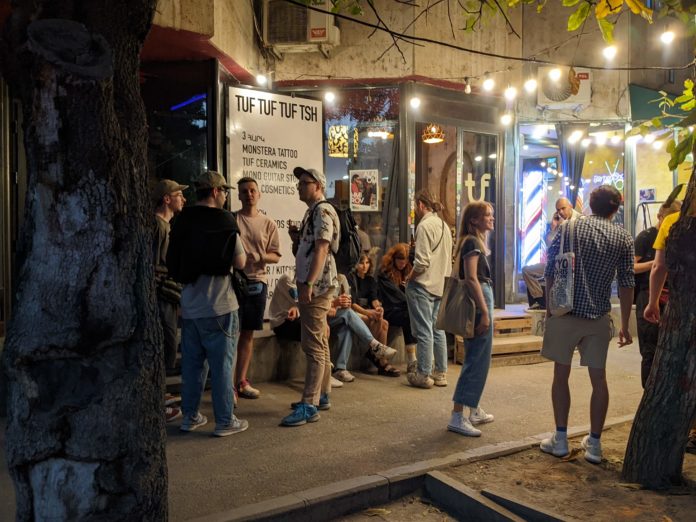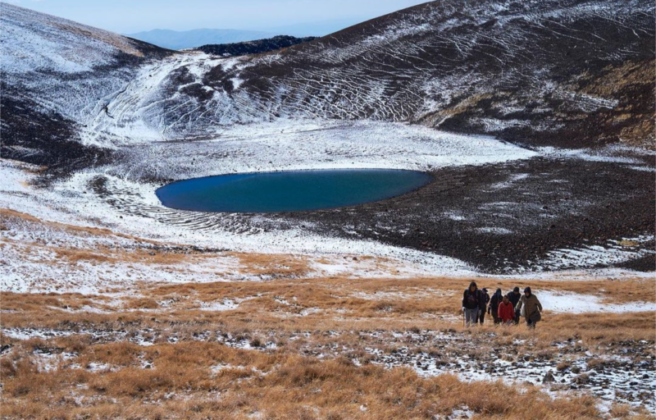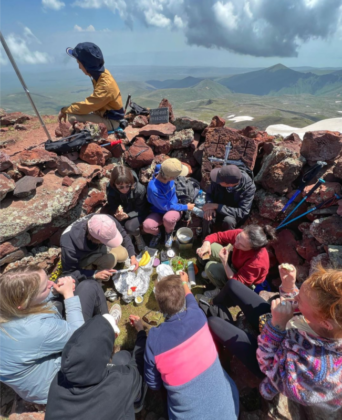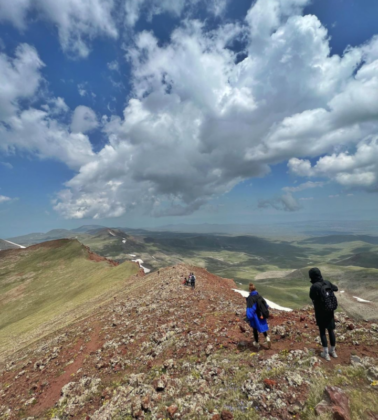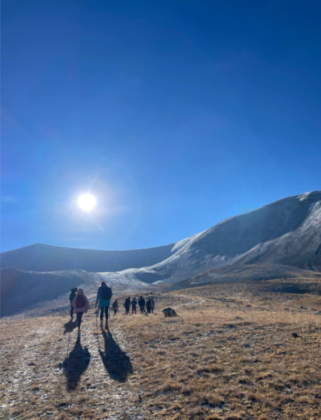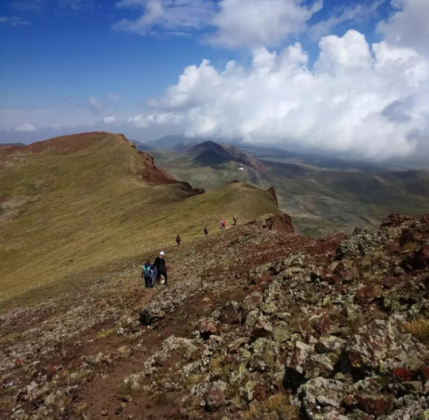YEREVAN — Hostels are known to budget travelers and digital nomads as cheap and convenient places to stay while traveling abroad. Tens of thousands of Russians have come to Armenia since the start of the war in Ukraine, and hostels have played an important role in helping them settle here, often serving as affordable long-term housing while apartment rents skyrocket. A new wave is currently arriving daily escaping Vladimir Putin’s mobilization announced on September 21, while travel sites like Booking.com indicate every single hostel in Yerevan is completely full. We will explore the story of one of those hostels and a few of the Russian émigrés who now call it home.
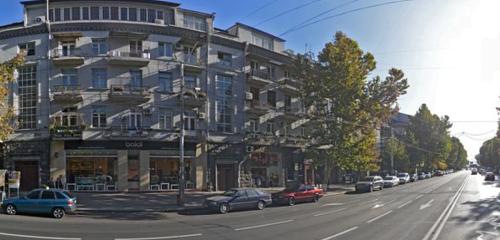
Highland Hostel was opened in April 2019 near the corner of Mashtots and Amiryan Streets in Yerevan’s center. Its founder, Tigran Khachaturyan, had spent many years in the automotive industry, including in a grueling position at a large car company in Moscow, which gave him the desire to become his own boss and combine his lifelong passions for hiking and tourism into a business. He returned to Yerevan and renovated a top-floor apartment into a homey living space for up to ten guests at a time, while also leading tours for his guests who were eager to experience Armenia’s beautiful nature. Just as the hostel was gaining traction, the 2020 pandemic obliterated the tourist industry, but Khachaturyan was focused on keeping it open, if only for a single guest at a time. “There were fears at times that life would never come back to normal, the future was so uncertain,” Khachaturyan said, but with Armenia never enforcing strict lockdown rules, unlike many other European countries, things started to improve by 2021 with an increase in guests looking for an escape from those restrictions. “Many of these guests told me they would have never thought of visiting Armenia until they saw it on a list of affordable places which had opened up, and they were surprised by what they found here, telling me that if they had known how great Armenia was earlier, they definitely would have visited.”
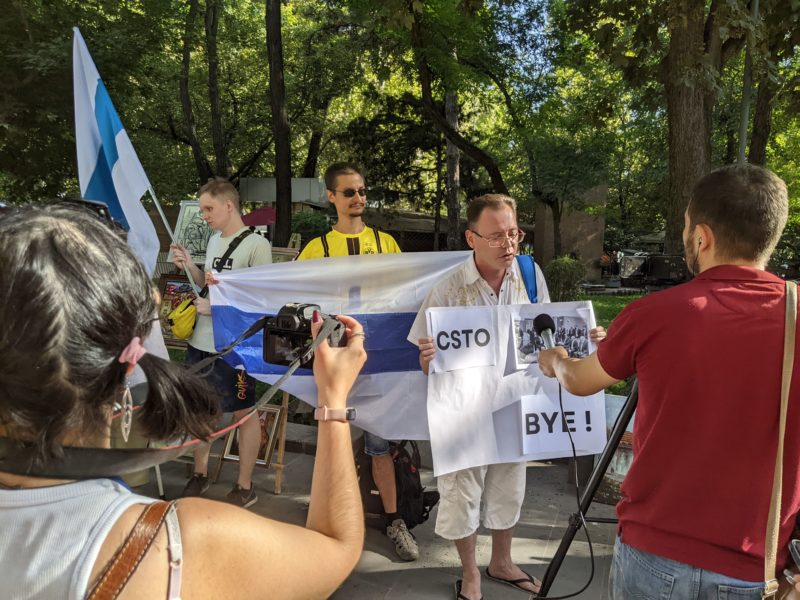
Business was back on track and was going through its typical February lull when Russia’s invasion of Ukraine changed everything. With Russians moving in, the hostel has been more or less booked solid ever since. With some of the March émigrés still living at the hostel, there’s just no room at the inn for the latest ones. “Even though the booking websites are full, newcomers still find Highland through Google and I get 20 to 30 calls a day trying to get a bed here. Unfortunately there’s nothing I can do for them right now,” said Khachaturyan. Unlike the IT professionals typical of the first wave, those coming now are young, sometimes unskilled men who are only in Armenia by the chance of it being the destination they were able to get a ticket to first, with no plan of what comes next. As one of Highland’s guests, Andrey, explained about the latest arrivals, “their plan was just to get out of Russia. They have no idea what to do now that they are here. Some don’t have much money. They’re trying to find jobs or a way to support themselves. I’m glad that we have a community of Russians here who help each other out with money and places to stay.”
Andrey had been sent on a paid business trip by his international IT company to Armenia for a month when the war started. However, when that trip finished with no sign of things returning to normal in Russia, he was told in order to keep his job he’d need to remain abroad, and he stayed in Armenia rather than move to another country because of its familiarity and relative inexpensiveness. He had only gotten this particular job a few months prior, and if he hadn’t, he never would have left Russia because he loves his hometown. Now, he’s on the outside able to help his friends get out and to navigate their new life in Yerevan.
Yerevan is already full, but those looking for a refuge will not let up. It is still early days since the mobilization. At first, prices for a ticket to Yerevan soared to over $10,000, but flights still filled up. Many looking to get out still must wait a week or two until their first available flight. However, they have no idea if they’ll actually be able to leave, as the possibility looms that Putin may close the borders to all men of mobilization age at any time. Time is of the essence, and many are thinking of contingency plans if it comes to that.
Another one of Highland’s guests is Nikolai, 24, who like Andrey, became familiar with Armenia when he visited as a tourist last year. Back in Russia, he went to a protest on the first day of the Ukraine war, where he says he was caught by police and spent a night on a station floor. “I started to think, how can I be prepared for what is going on in my country? What will happen to my family? I decided that if I can move somewhere outside it, I can be more valuable to my friends and family as I will be in a position to help in the case of something really bad — like this mobilization, for example.”
